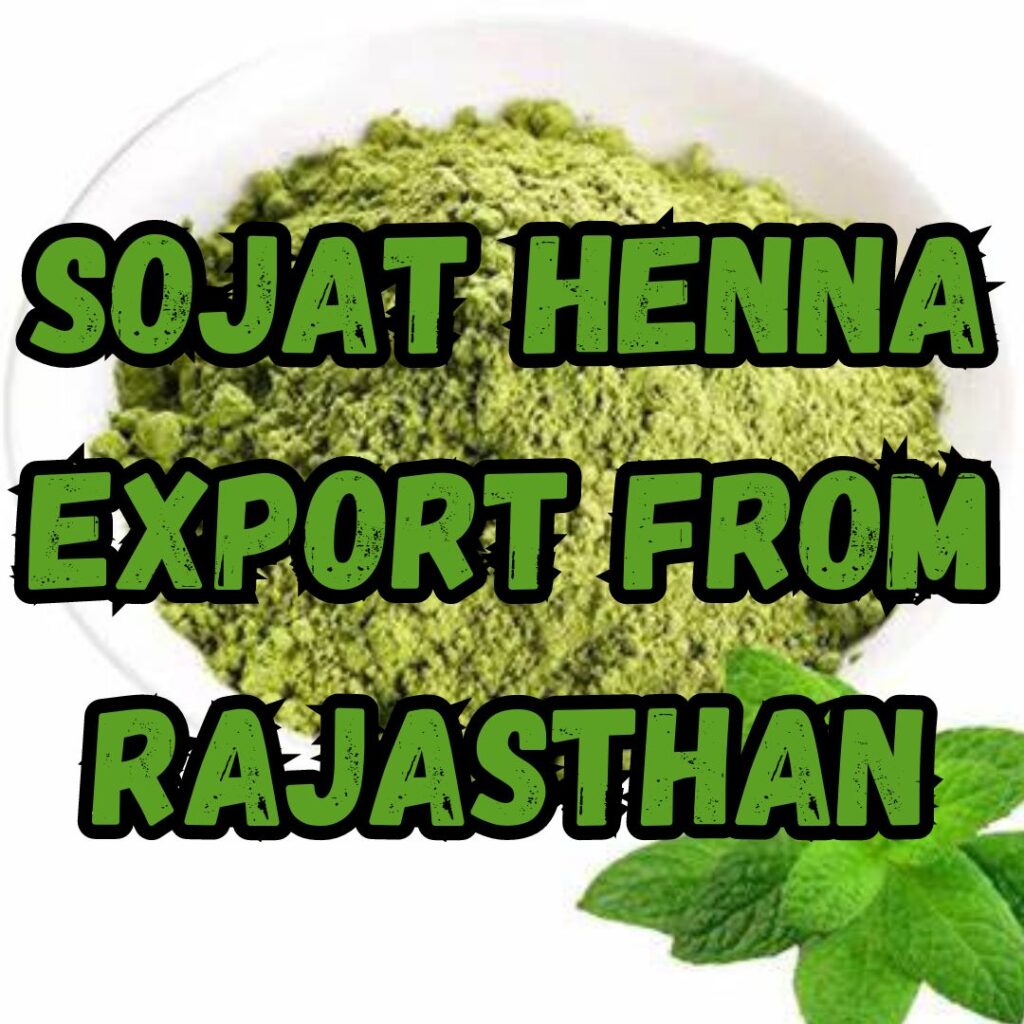Quality: Sojat Henna is renowned for its superior quality and deep color. The henna leaves grown in the arid and dry climate of Rajasthan are believed to produce the best henna powder for body art and hair coloring.
Cultivation: Henna plants (Lawsonia inermis) are cultivated in the Sojat region and other parts of Rajasthan. These plants require well-drained soil and plenty of sunlight. The leaves of the henna plant are harvested and dried to produce henna powder.
Processing: Once the henna leaves are harvested, they are dried and ground into a fine powder. The powder is then sifted to remove impurities and achieve a smooth texture.
Packaging: Sojat Henna is typically packaged in various sizes, from small sachets to larger bulk bags, to cater to different customer needs.
Export: Sojat Henna is in high demand not only in India but also in international markets. It is exported to countries all over the world, including the Middle East, North America, Europe, and Southeast Asia.
Use: Sojat Henna is used for a variety of purposes, including body art (mehndi designs), hair coloring, and even as a natural hair conditioner. It is also used in traditional and cultural ceremonies and celebrations, such as weddings and festivals.
Regulations: When exporting henna from India, it’s essential to adhere to the regulations and guidelines set by the Indian government and the importing country. These regulations may include quality standards, packaging requirements, and documentation.
Competition: The henna market is competitive, with several brands and suppliers vying for customers both domestically and internationally. Quality, purity, and consistency are crucial factors in maintaining a competitive edge.
Market Trends: The henna industry has seen trends such as the demand for organic and chemical-free henna products due to increasing awareness of health and environmental concerns. To remain competitive, exporters may need to adapt to changing market preferences.
Exporting Sojat Henna from Rajasthan can be a profitable venture, but it’s essential for exporters to maintain the quality and purity of their products to meet the expectations of customers worldwide. Additionally, staying informed about market trends and complying with regulatory requirements is crucial for success in the global henna market
mehandiexport #sojatkimehndi #hennaexport #howtoexporthennapowder #hennamehndi #hennaexportfromindia #herbalhennaexport #henna #sojathenna #whatislawsonecontaint
howtoexport #export #import #exportimportbusiness



